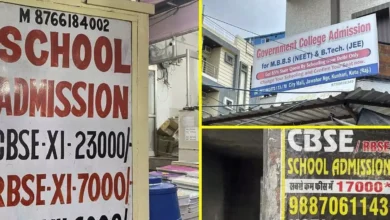Top Loss Making Start-up Companies In India
Bootstrapped new businesses can’t stand to make crores of rupees of misfortunes except if the originators have profound pockets. However, for supported new businesses, the situation is unique.
Billion dollar worldwide new businesses like Uber have an astounding $5.2 billion (that is near Rs 40,000 crore) of overal deficit in the subsequent quarter. Another mammoth, SnapChat, detailed lost $227 million (around Rs 1,500 crore) in the second from last quarter, as indicated by the organization.
All things considered, Indian unicorns are not remaining behind either. Here is a brisk rundown of misfortune making new businesses in India that are esteemed at a billion dollars yet are losing several crores of rupees consistently (some are in any event, losing thousands) and as yet going solid. Investigate.
#1 FlipKart
FlipKart has enrolled lost over Rs. 3,837 crore for the monetary year 2018-2019, as indicated by paper.vc. Flipkart Internet runs the online commercial center and had detailed misfortunes of about Rs. 1,100 crore in FY’17-18. What’s more, Flipkart India which is the discount arm of the online retailer lost over Rs. 2000 crore in that equivalent period.
#2 Zomato
In February 2018, the 10-year-old nourishment tech organization Zomato became unicorn at a valuation of $1.1 billion. The organization has detailed lost around Rs. 2,035 crore for the year finished March 2019.
#3 Ola
Uber’s most outstanding adversary in India, Ola, chalked up a merged loss of Rs 2,824 crore in the FY 18 as per its filings with the Registrar of Companies.
#4 Paytm
Paytm’s parent organization One97 is another unicorn that has made critical misfortunes in spite of the fact that the income went up too. The organization had a combined loss of Rs 4,217.20 crore in the money related year finishing March 31, 2019, up from Rs 1,606.65 crore in the year-prior period, as indicated by subtleties discharged by the organization that were imparted to investors . The Paytm web based business has chopped down its misfortunes to Rs. 1,172 crore in 2018-2019 from around Rs. 1,788 crore in the past money related year.
#5 Oyo Rooms
Oyo has been in the billion dollar club for at some point with a valuation of walloping $10 Bn. The organization detailed lost Rs. 330.97 crore for the money related year finished March 2017. The number plunged by 33% , contrasted with Rs. 496.31 for the past monetary year.
Presently, the organization’s overal deficit is assessed to have ascended to walloping Rs 511.8 crore during the year finished 31st March.
#6 Hike Messenger
Climb Messenger is the brainchild of Airtel Chief Sunil Mittal’s child, Kavin Bharti Mittal. The organization saw lost Rs 205.6 crore for the budgetary year finished March 2019. That is a drop of around 106%, when contrasted with lost Rs 423 crore it acquired in FY18. As indicated by VCCEdge, the information inquire about foundation of News Corp VCCircle, the misfortune is because of the rising promoting costs dependent on Hike Messenger’s filings with the Registrar of Companies.
#7 Swiggy
Swiggy is another new participant in the billion dollar club since June 2018. The organization has a valuation of walloping $3.3 billion and giving its opponent Zomato a run for their cash. The organization revealed an income of Rs. 470 crore on lost Rs. 397.3 crore for the FY 2018.
#8 Big Basket
Online basic food item conveyance startup Big Basket turned into a unicorn in mid 2019. The discount arm of Big Basket has seen lost Rs. 310 crore in FY 2018, somewhere around 53% from its Rs. 653 crore misfortune in FY17.
Non-Billion Dollar Companies Making Losses
Be that as it may, it isn’t just the unicorns that are consuming money. Other unmistakable new businesses which are nearly entering the billion dollar club are additionally making colossal misfortunes. Here are two such misfortune making organizations in India.
- Quickr: Rs 233 crore in FY 2018.
- Grofers: Rs 258.30 crore in the FY 2018.
A large portion of the organizations recorded here have encountered a development in their income figures so they may have the option to make something happen to pick up benefits before long like another billion dollar Indian startup, InMobi, did. Yet, how soon that will occur or whether it will even happen the truth will surface eventually. Till at that point, let us watch and pause.
All in all, have we missed any new companies that ought to have been remembered for this rundown of misfortune making new businesses in India? Do you have any inquiries? If it’s not too much trouble don’t hesitate to leave your remarks beneath. I couldn’t imagine anything better than to get notification from you.
The account service is probably going to propose a base measure of expense on misfortune making organizations in the up and coming spending plan or soon after that. In any case, certifiable misfortune bearing organizations may recover credit in the following 15 years, an exceptionally set fund service source disclosed to India Today.
This assessment rate would not be as high as the present least elective duty (MAT) pace of 18.5 percent. “The duty rate might be not exactly the current MAT pace of 18.5 percent, however the legislature is thinking about some ostensible expense,” the money service official said on state of namelessness.
The legislature is effectively considering a few charges on organizations that utilization assets, for example, settled up capital and getting.
Organizations report two arrangements of procuring subtleties – one under annual assessment and the other under Companies Act, 2013. In any case, a few organizations make colossal benefits and deliver profits to investors under the Companies Act, and simultaneously, show zero procuring to evade personal duty. Tangle was acquainted with attachment such escape clauses.
In any case, a few organizations are still out of MAT ambit as misfortune making substances. The legislature is attempting to bring them under the assessment net at this point.
Duty specialists said demanding an ostensible assessment on such substances is a smart thought, yet it ought not be as high as the current MAT rate.
In 1987, it was supplanted and changed with new arrangements wherein if an organization’s benefits were more than income registered under standard necessities of the Companies Act, it would need to pay in any event 30 percent of its book benefit as assessment. In the wake of rebuilding in 1991, the administration said there was no compelling reason to hold a base duty on organizations.
In any case, following five years, it was reintroduced in 1996 with the name ‘Least Alternate Tax’ (MAT). In 2001, MAT arrangements were by and by adjusted, and organizations were to have the two-charge rate – the corporate expense and MAT – and needed to pay the higher one. In any case, since 2001, MAT credit and convey forward arrangements were dropped.
In 2005, the MAT credit and convey forward system was reintroduced with a convey forward of five years, which has been reached out throughout the years to 10 years, and right now it is 15 years.
Information shows that the MAT rate has bit by bit ascended throughout the years in India. Enterprises said that such high ‘least’ charge arrangement is hard for organizations in an intense monetary circumstance. Complex “book benefit” computation under MAT arrangements has likewise been viewed as a test for organizations.
Misfortune making organizations, up until this point, have been absolved to cover any immediate duty while utilizing all assets and paying circuitous expenses for quite a long while. The administration needs to require a base assessment on such misfortune detailing organizations with an arrangement of relief for real misfortune bearers. It might bolster account serve Nirmala Sitaraman and her group, battling to adjust government cash and use to fix monetary shortfall somewhat.
The finance ministry is likely to propose a minimum amount of tax on loss-making companies in the upcoming budget or just after that. However, genuine loss-bearing companies may redeem credit in the next 15 years, a highly placed finance ministry source told India Today.
This tax rate would not be as high as the current minimum alternative tax (MAT) rate of 18.5 per cent. “The tax rate may be less than the existing MAT rate of 18.5 per cent, but the government is considering some nominal tax,” the finance ministry official said on condition of anonymity.
The government is actively considering some charges on companies that use resources such as paid-up capital and borrowing.
So, it is very important for the people to take a look before investing their money in such companies so that they do not waste their money and get profit and benefits I return so that one should work in a peaceful manner and easy manner. You can also look and serve more viewpoints if we missed out any so that the facts can be presented and accepted by everyone for their information and knowledge as per the convenience of their need for the benefit and the knowledgeable process of the people.




